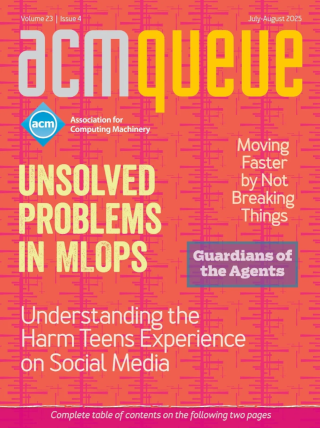
GFS: Evolution on Fast-forward:
A discussion between Kirk McKusick and Sean Quinlan about the origin and evolution of the Google File System
During the early stages of development at Google, the initial thinking did not include plans for building a new file system. While work was still being done on one of the earliest versions of the company’s crawl and indexing system, however, it became quite clear to the core engineers that they really had no other choice, and GFS (Google File System) was born.
The Meaning of Maintenance:
Software maintenance is more than just bug fixes.
Isn’t software maintenance a misnomer? I’ve never heard of anyone reviewing a piece of code every year, just to make sure it was still in good shape. It seems like software maintenance is really just a cover for bug fixing. When I think of maintenance I think of taking my car in for an oil change, not fixing a piece of code. Are there any people who actually review code after it has been running in a production environment?
Making Sense of Revision-control Systems:
Whether distributed or centralized, all revision-control systems come with complicated sets of tradeoffs. How do you find the best match between tool and team?
Modern software is tremendously complicated, and the methods that teams use to manage its development reflect this complexity. Though many organizations use revision-control software to track and manage the complexity of a project as it evolves, the topic of how to make an informed choice of revision-control tools has received scant attention. Until fairly recently, the world of revision control was moribund, so there was simply not much to say on this subject.
Four Billion Little Brothers? Privacy, mobile phones, and ubiquitous data collection:
Participatory sensing technologies could improve our lives and our communities, but at what cost to our privacy?
They place calls, surf the Internet, and there are close to 4 billion of them in the world. Their built-in microphones, cameras, and location awareness can collect images, sound, and GPS data. Beyond chatting and texting, these features could make phones ubiquitous, familiar tools for quantifying personal patterns and habits. They could also be platforms for thousands to document a neighborhood, gather evidence to make a case, or study mobility and health. This data could help you understand your daily carbon footprint, exposure to air pollution, exercise habits, and frequency of interactions with family and friends.



